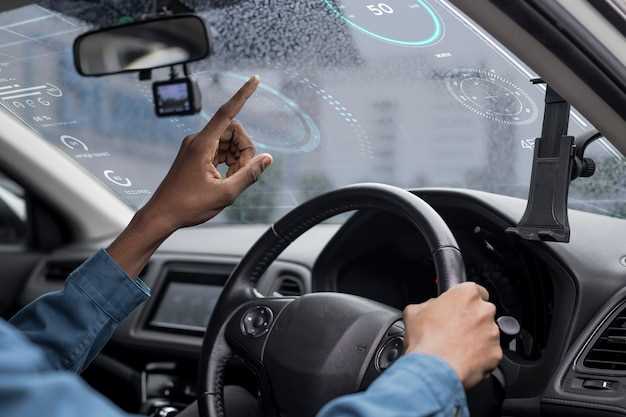
The evolution of autonomous driving technology has made significant strides in recent years, and Toyota stands at the forefront of this transformation in the automotive industry. With a keen focus on enhancing the safety of cars, Toyota is reimagining the way we approach transportation through pioneering innovations. The company is committed to developing systems that not only make driving more convenient but also minimize risks on the road.
One of the cornerstones of Toyota’s approach is the integration of advanced sensor systems and artificial intelligence, which allow vehicles to perceive their surroundings in real-time. This technology plays a pivotal role in ensuring the safety of both drivers and pedestrians. By leveraging data and analytics, Toyota aims to create cars that can anticipate and react to potential hazards, thereby reducing the likelihood of accidents.
Furthermore, Toyota’s dedication to collaboration with various technology partners ensures a continuous refinement of its autonomous systems. By staying ahead of the curve in research and development, the company strives to enhance the overall driving experience while upholding its commitment to safety. As these advancements unfold, the future of transportation promises to be not just more efficient but also significantly safer for all road users.
Key Features of Toyota’s Latest Autonomous Driving Systems

Toyota’s latest autonomous driving systems incorporate several advanced features that enhance both the functionality and safety of their cars. One of the most notable innovations is the use of Artificial Intelligence algorithms, which allow vehicles to learn from various driving conditions and improve decision-making over time. This capability makes the cars more adaptable and efficient in navigating complex environments.
Another key feature is the comprehensive sensor suite, which includes LiDAR, radar, and cameras. This technology provides 360-degree awareness around the vehicle, enabling it to detect obstacles, pedestrians, and other road users with high precision. The integration of these sensors ensures that Toyota’s autonomous cars can operate safely in diverse scenarios, including urban settings and highways.
Moreover, real-time data processing is vital for effective autonomous driving. Toyota’s systems are designed to process vast amounts of data instantly, facilitating quick decision-making that prioritizes safety. This ensures that the cars can respond to sudden changes in their environment, such as unexpected roadblocks or changes in traffic patterns.
The systems also feature advanced driver assistance technologies that enhance safety during both autonomous and manual driving. Features such as lane-keeping assist, adaptive cruise control, and automatic emergency braking work together to create a safer driving experience. These technologies mitigate risks and protect occupants and pedestrians alike.
Furthermore, Toyota’s commitment to cybersecurity in their autonomous systems is paramount. As cars become more connected, safeguarding against potential threats is essential to maintain the integrity of the driving experience. Toyota implements rigorous testing and continuous updates to protect against vulnerabilities, ensuring the safety of its users.
Overall, Toyota’s advancements in autonomous driving technology demonstrate a clear focus on safety, user experience, and innovative engineering, setting a benchmark in the automotive industry.
How Toyota Ensures Safety in Autonomous Vehicles

Toyota prioritizes safety in its autonomous vehicles through a multifaceted approach that integrates advanced technology, rigorous testing, and comprehensive safety protocols. The company’s Safety Sense technology suite is designed to prevent collisions and enhance driver awareness. This suite includes features like pre-collision systems, adaptive cruise control, and lane departure alerts, which work seamlessly to create a safer driving environment.
To further enhance safety, Toyota employs an extensive testing program that simulates various driving conditions and scenarios. By utilizing both closed-course testing and real-world road trials, the company ensures that its autonomous systems can respond effectively to unpredictable situations. This iterative process allows Toyota to refine algorithms and improve vehicle responses under a wide range of circumstances.
Collaboration with regulatory bodies and industry partners is another key aspect of Toyota’s commitment to safety. The company actively participates in the development of global safety standards for autonomous vehicles. This engagement helps ensure that their technology meets or exceeds safety requirements in different markets.
Additionally, Toyota integrates artificial intelligence and machine learning into its vehicles to enhance decision-making and response times. By analyzing vast amounts of data from various sensors, autonomous systems can identify potential hazards and react promptly, significantly reducing the risk of accidents.
Finally, Toyota emphasizes comprehensive user education, informing drivers about the capabilities and limitations of autonomous technology. By fostering a clear understanding of how to safely interact with these systems, Toyota aims to create a culture of safety among users of autonomous vehicles.
Real-World Applications of Toyota’s Autonomous Driving Innovations
Toyota has made significant strides in the realm of autonomous driving, focusing on developing technologies that enhance safety and efficiency in real-world environments. One of the most notable applications is the integration of advanced driver-assistance systems (ADAS) in their production vehicles. These systems utilize sensors and artificial intelligence to enable cars to navigate complex traffic scenarios, making driving safer for everyone.
Another application can be observed in the deployment of autonomous shuttles in urban areas. Toyota’s Mobility Services Platform powers these vehicles, providing a reliable mode of transportation, particularly for those who may have difficulty driving. By using autonomous cars in public transport, Toyota is contributing to reducing congestion and emissions in city environments.
In addition, Toyota is exploring partnerships with various organizations to enhance logistics and goods transportation. The autonomous technology applied to delivery vehicles is transforming how goods are moved. Toyota’s innovations enable time-efficient, cost-effective solutions that adapt to varying delivery conditions.
Furthermore, Toyota is actively participating in pilot programs that test autonomous vehicles in real-world scenarios, such as ride-sharing services. By collecting data from these operations, Toyota aims to refine their algorithms and better understand human-vehicle interactions, pushing the envelope on what autonomous technology can achieve for everyday users.
Overall, Toyota’s commitment to integrating autonomous technology into practical applications reflects its vision for a safer, more efficient, and sustainable future for mobility worldwide.
